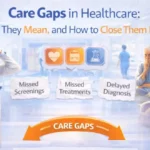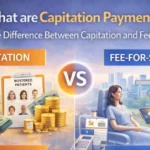Medication Therapy Management (MTM) in 2025: Latest Updates and Use Cases for Providers

Table of Contents
ToggleWhat is Medication Therapy Management (MTM)?
Medication Therapy Management or MTM is a service or group of services designed to optimize therapeutic outcomes for individual patients. It is often provided by pharmacists or clinical staff on behalf of the provider and includes:
- Comprehensive Medication Reviews (CMR)
- Medication reconciliation
- Drug interaction screening
- Patient education and adherence support
- Identifying and resolving medication-related problems
MTM is especially valuable for patients who engage in polypharmacy (utilizing multiple medications), have chronic illnesses, and are frequently hospitalized.
Half of U.S. adults over 65 take five or more medications—yet non-adherence continues to cause thousands of avoidable ER visits. MTM in 2025 is finally addressing this gap. Medication Therapy Management (MTM) continues to progress in 2025 as a key initiative for maximizing patient outcomes, reducing healthcare costs, and improving care coordination.
The ever-increasing complexity of medication regimens (particularly among patients living with chronic conditions) is prompting providers to explore the medication therapy process in new and innovative ways to improve medication adherence, patient safety, and overall health.
CMS Changes & Updates to MTM in 2025
- CMS Expanded Guidelines and Reimbursement
In January 2025, the Centers for Medicare & Medicaid Services (CMS) expanded the eligibility for MTM in Medicare Part D. The criteria have changed to reflect:
-
- Patients taking five or more chronic medications (down from eight)
- A diagnosis of at least one chronic condition
- The total amount of medications exceeded $4,935
The expansion increases the eligible patient population and gives providers higher incentives to incorporate MTM into their care delivery models.
- Rise of AI and Clinical Decision Support
Healthcare organizations are now implementing platforms powered by AI, allowing medication profiles to be analyzed to flag potential drug interactions and suggest optimization strategies.
These technologies are built into EHR systems, allowing pharmacists and care teams to:
-
- Identify high-risk patients
- Automate medication reviews
- Provide actionable recommendations
- Interoperability Standards from TEFCA
MTM platforms now comply with TEFCA standards (Trusted Exchange Framework and Common Agreement) to allow better data sharing among providers, pharmacists, care providers, and payers. This enables more accurate medication reconciliation and coordinated patient-centered care.
- MTM in Value-Based Care Arrangements
MTM is now a performance measure in several value-based care arrangements. Providers improving adherence and adverse drug event (ADE) measures through MTM can now obtain shared savings from payers.
Also Read: Medication Therapy Management (MTM): All You Need to Know
Top 4 Use Cases of MTM for Healthcare Providers
- Chronic Disease Management
Providers treating patients with chronic diseases such as diabetes, COPD, and heart failure could use MTM to optimize medication use and ensure they work as intended. Medication Therapy Management reviews can identify:
-
- Duplicative therapies
- Sub therapeutic doses
- Drug-drug and drug-disease interactions
For example, a patient with diabetes may be on multiple medications with overlapping action mechanisms. The MTM review results in de-prescribing, cost savings, and improved glycemic control.
- Hospital Readmissions
Hospitals and post-acute care providers are increasingly relying on MTM as part of care transitions. Medication reconciliation post-hospitalization aims to cross-check prior medication orders to avoid errors. Medication reconciliation post-discharge helps prevent readmissions, which is an important metric in value-based payment models.
For example, a patient discharged following a heart failure exacerbation receives a CMR ( put full acronym after) within 72 hours. The MTM pharmacist realizes that all but one beta-blocker was left off the discharge orders, preventing potential readmission.
- Supporting Value-Based Care Initiatives
MTM services align most directly with Accountable Care Organizations (ACOs) and other value-based contract arrangements where the aim is to increase medication adherence and reduce the cost of care. Using MTM data, providers can now track the outcomes of interventions and associate risk-adjusted savings.
For example, a primary care group contracts with a pharmacist to provide MTM services to their high-risk Medicare patients. Medication adherence improves from 70% to 85%, and emergency visits decline. The group receives shared savings.
- Treating Polypharmacy in Older Adults
Medication Therapy Management is especially important for older adults who are often on 5 or more medications. MTM professionals work with healthcare providers to discontinue unnecessary drugs and control adverse effects or interactions.
For example, an 82-year-old patient with cognitive impairment is on a sedating antihistamine. The MTM professional reviews this and identifies a safer alternative, decreasing the patient’s risk of falling.
- Specialty Medication Management
Patients taking specialty medications such as biologics or cancer therapies need continual monitoring and education. MTM professionals help manage side effects, ensure compliance, and provide patient education for complicated dosing regimens.
For example, an oncology provider has a patient starting oral chemotherapy. The patient is referred for MTM. The pharmacist arranges to meet with the patient to discuss their history. The patient is educated on oral chemotherapy administration and receives help managing side effects, including checking for interactions with over-the-counter medications.
How Providers Can Implement MTM into Their Practice
- Work with pharmacies or MTM partners: This could involve partnerships with local pharmacies or digital MTM service partners. Start with those that can scale or at least offer clinical pharmacists who can collaborate or cooperate with you.
- Use MTM options built into an EHR: MTM solutions embedded within your existing EHR system can be leveraged for documentation and patient alerts.
- Train nurses and care coordinators: Train staff to identify patients who would benefit from MTM and refer them accordingly.
- Integrate MTM into CCM or RPM: If you provide Chronic Care Management (CCM) or Remote Patient Monitoring (RPM), include MTM as a touch point in care plans.
- Track MTM outcomes: Use dashboards to display medication adherence rates, resolve medication-related problems, and avoid hospitalizations.
Moving Forward- The Future of Medication Therapy Management
As medication regimens are becoming increasingly complex, the relevance of MTM will only rise. In 2025, MTM is and will remain a strategic priority for providers in value-based care models.
Fortunately, MTM is supported by regulations, technological advancements, and clear ROI pathways. Its impact is transforming medication management from a reactive exercise to a proactive, patient-centered approach.
Whether you’re a primary care clinic, specialty practice, or health system, now is the time to evaluate your MTM plan and ensure it reflects current best practices.
If you’re a healthcare provider striving to improve patient outcomes while reducing avoidable costs and enhancing quality metrics, investing in a contemporary MTM program is not only advisable, but also critical.
HealthArc: Empowering Medication Therapy Management into the Future
As MTM continues to become a critical aspect of future patient-centered care, providers need a partner that supports their ability to optimize workflows, facilitate clinical decision-making, and generate actionable outcomes.
HealthArc delivers an integrated, AI-enabled MTM solution that allows care teams to:
- Automate medication reviews with intelligent algorithms that identify potential concerns, including drug interactions, poor adherence, and duplicative therapies.
- Provide complete CMRs in person or via remote care programs, accommodating various patient scheduling needs.
- Interface with EHR and RPM systems, allowing real-time access to patient vitals and lab results to assess medication effects.
- Communicate or push information to patients through mobile apps and reminders, mitigating missed appointments and improving adherence and health literacy.
- Analyze outcomes and establish ROI through a robust analytics dashboard that supports value-based care and precise reimbursement.
Whether you’re a primary care provider, specialty clinic, or health system aiming to expand MTM services, HealthArc equips your teams with the tools and support needed to manage medications more safely, intelligently, and efficiently. Clients using HealthArc MTM reported a 19% drop in adverse drug events within six months.
Schedule a demo now to find out how HealthArc can help turn MTM from a regulatory constraint into a competitive advantage.
Frequently Asked Questions (FAQs)
According to the latest criteria, patients with at least one chronic condition, taking five or more medications and exceeding $4,935 annually on medications now qualify for MTM services. The expansion of qualification criteria was done to reduce hospitalizations and improve outcomes for patients with complex medication concerns.
AI provides MTM with increased efficiency, accuracy, and scalability. Examples of AI improvements in MTM include:
- Predictive adherence risk scoring to proactively identify patients likely to miss medications.
- Automated follow-ups triggered by medication changes or missed refills.
- Real-time clinical alerts that alert providers to potential drug interactions or high-risk combinations.
MTM plays a crucial role in value-based care, as it reduces medication-related complications, increases adherence, and improves therapeutic outcomes. By 2025, MTM programs will directly impact:
- ACO performance benchmarks, including decreased hospital readmissions and emergency visits.
- Patient satisfaction scores, (particularly) through engagement with patients, enabling personalized support and medication directions.
- Reduced overall healthcare costs, within the context of shared savings incentives in Medicare/Medicaid programs.
While there are many platforms for digital MTM, HealthArc is one of the preferred platforms by pharmacies and providers. It offers:
- AI-driven eligibility check that is based on current CMS requirements.
- Care plan tracking in EHR level integration, with real time access to patient’s medication history.
- Audit ready documentation that meets Medicare requirements, allowing for simplified billing and reporting.
HealthArc’s MTM platform provides the necessary features and flexibility to deliver scalable, efficient, and patient-centered MTM services for providers and pharmacists.
References
- Centers for Medicare & Medicaid Services (CMS). “Medicare Part D Medication Therapy Management (MTM) Program Updates – CY 2025.”
- American Pharmacists Association (APhA). “Medication Therapy Management: Optimizing Patient Outcomes.”
- Office of the National Coordinator for Health IT. “TEFCA Overview – Trusted Exchange Framework and Common Agreement.”
- S. Department of Health and Human Services. “Polypharmacy and Older Adults.”
- National Institute for Health Care Management (NIHCM). “Improving Medication Adherence: Challenges and Solutions.”
Most Recent Blogs
Categories
Related Blog
- December 5, 2025 | Read Time: 8 mins
Medication Therapy Management (MTM): Reducing Polypharmacy Risks in Older Adults
Approximately 30% of older adults in the U.S. are currently using five...
Learn More- July 15, 2025 | Read Time: 17 mins
Medication Therapy Management: An Essential Overview for Providers
The U.S. healthcare system is in urgent need of value-based medication models...
Learn More- May 15, 2025 | Read Time: 10 mins
Medication Therapy Management (MTM): All You Need to Know
About 6 in 10 adults in the United States use at least...
Learn More


